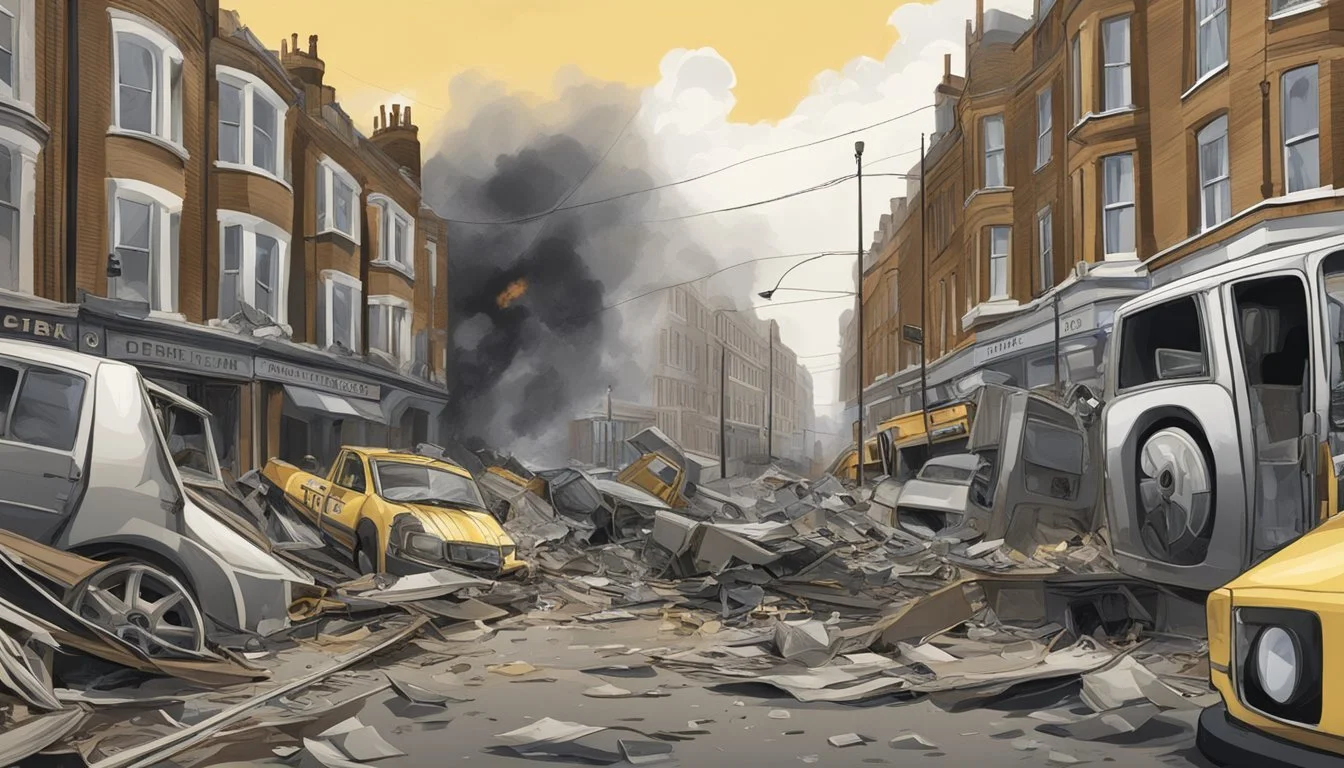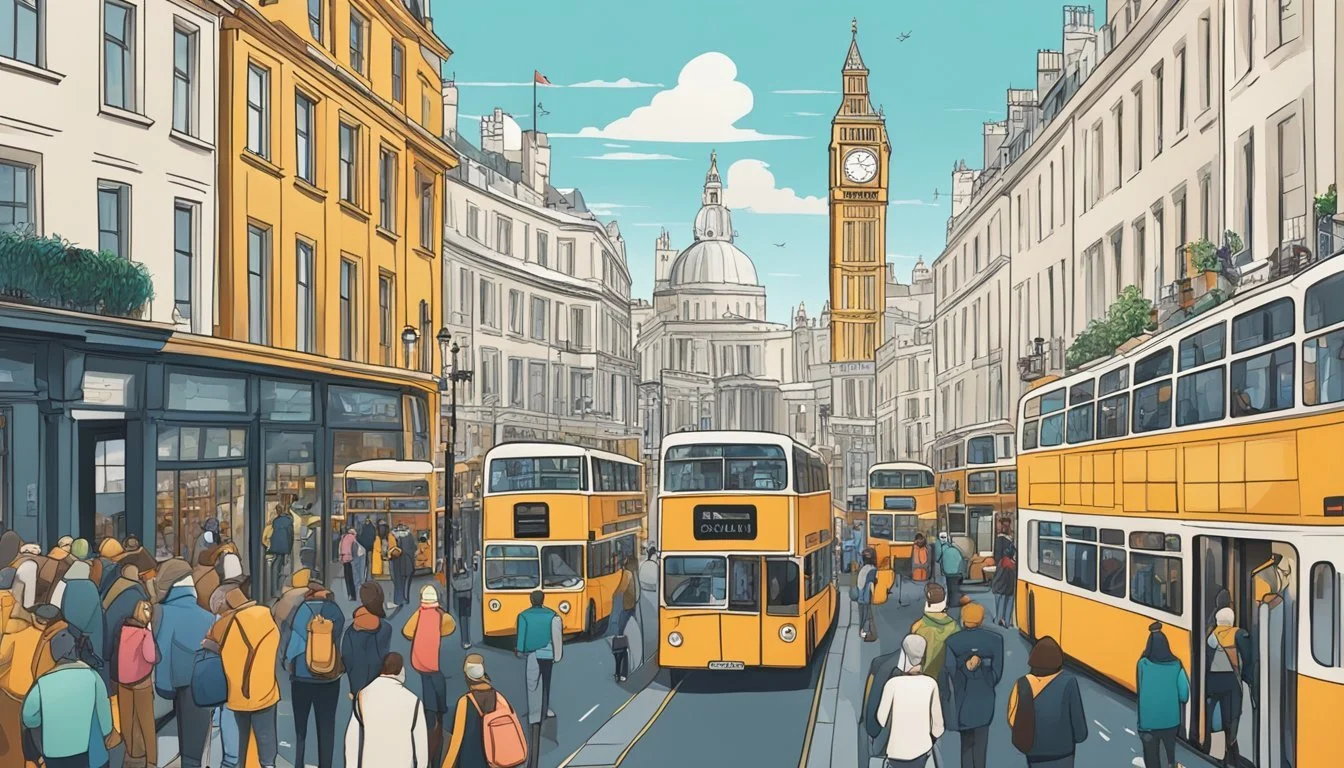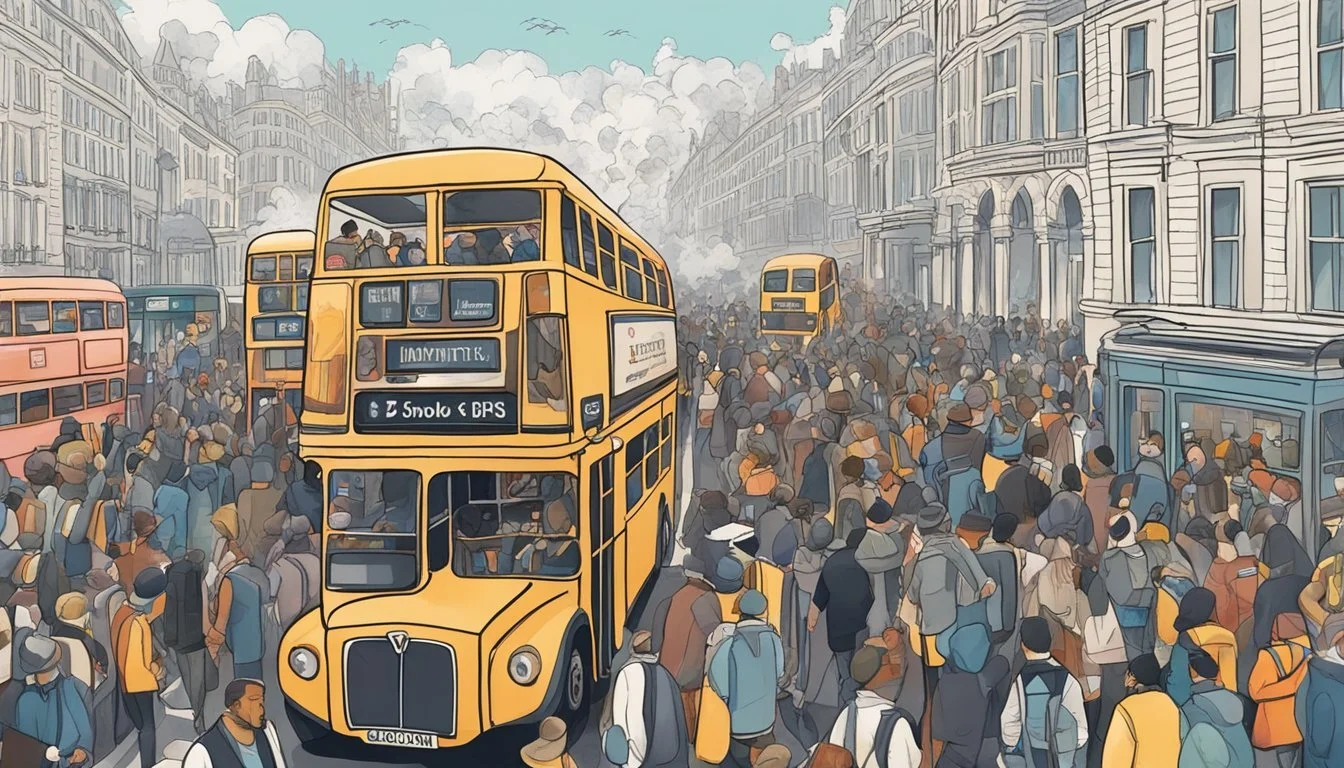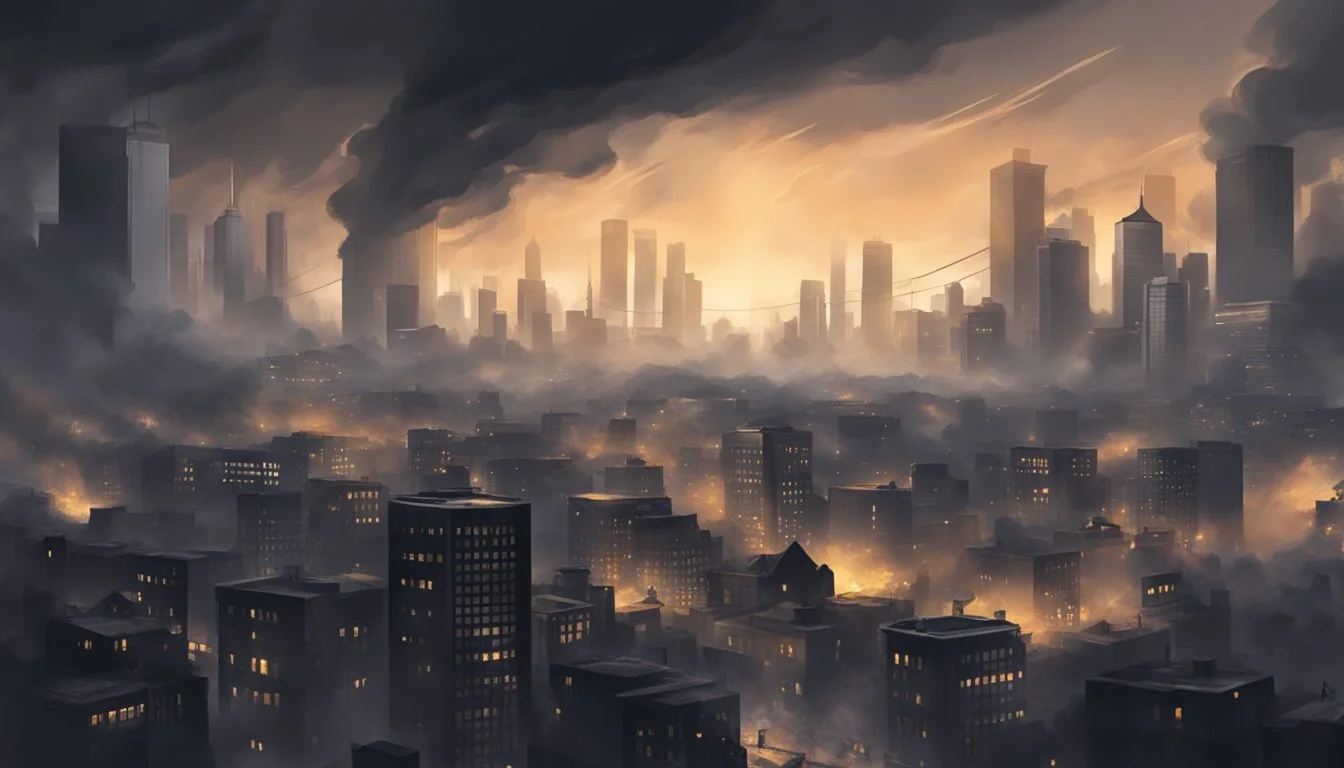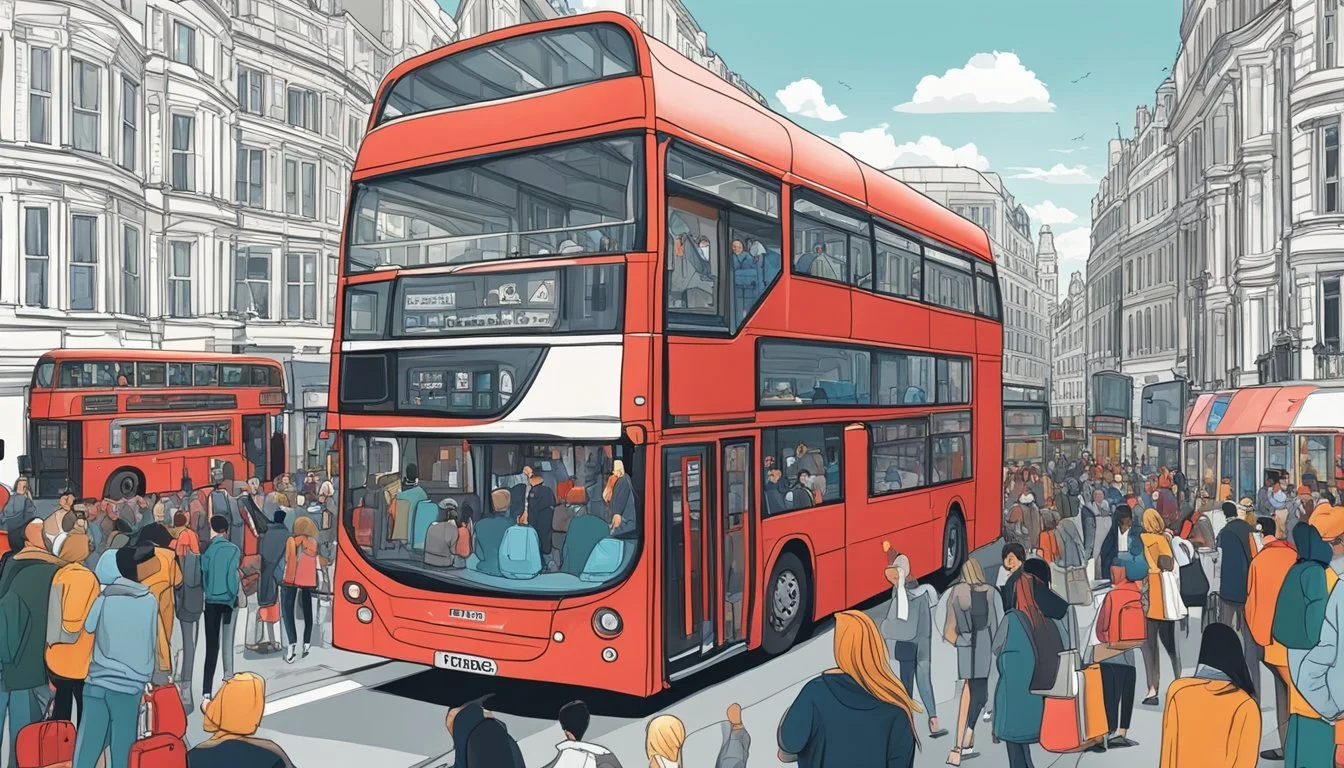7/7: 7 Films Examining the London Bombings
A Cinematic Exploration of Tragedy and Resilience
The 7/7 London bombings of 2005 left an indelible mark on British history. Four coordinated suicide attacks on the city's public transport system claimed 52 lives and injured hundreds more. This tragic event has since been the subject of numerous documentaries, each offering unique perspectives on the attacks and their aftermath.
These films provide valuable insights into the personal stories of survivors, the impact on London's communities, and the long-term consequences of the bombings. From in-depth analyses of the events to poignant reflections on resilience and recovery, these documentaries serve as important historical records and tributes to those affected by the attacks.
1) United 93
United 93 is a gripping dramatization of the events aboard United Airlines Flight 93 during the September 11 attacks. Directed by Paul Greengrass, the film provides a harrowing account of the passengers' heroic efforts to regain control of the hijacked plane.
The movie employs a documentary-style approach, using handheld cameras and a cast of relatively unknown actors to create a sense of authenticity. This technique immerses viewers in the tense atmosphere of that fateful day.
United 93 focuses on the real-time unfolding of events, from the initial hijacking to the passengers' realization of their dire situation. It portrays their courageous decision to fight back against the terrorists, ultimately leading to the plane's crash in Pennsylvania.
While not directly related to the 7/7 London bombings, United 93 shares thematic elements with films about that event. Both explore the human response to terrorism and the impact of such attacks on individuals and society.
The film received critical acclaim for its sensitive portrayal of the tragedy and its dedication to honoring the memory of those who lost their lives.
2) Four Lions
Four Lions is a satirical comedy film directed by Chris Morris that explores the absurdity of terrorism. Released in 2010, the movie follows a group of incompetent British Muslim men attempting to plan a terrorist attack.
The film sparked controversy due to its sensitive subject matter. Some family members of 7/7 bombing victims called for a boycott, citing similarities to real events. Graham Foulkes, who lost his son in the attacks, expressed concern about the film's proximity to the tragedy.
Despite the controversy, Four Lions received critical acclaim for its bold approach to a difficult topic. The film uses dark humor to highlight the foolishness of extremism and the flawed logic of terrorist ideologies.
The main characters' bumbling attempts at jihad serve as a critique of radicalization. Their incompetence and misguided beliefs are portrayed in a way that undermines the seriousness of their intended actions.
Four Lions pushes boundaries in its satirical treatment of terrorism. While some found it offensive, others praised its ability to provoke thought and discussion about a complex issue.
3) A Mighty Heart
"A Mighty Heart" portrays the true story of Mariane Pearl's search for her husband, journalist Daniel Pearl, who was kidnapped in Pakistan in 2002. While not directly about the 7/7 London bombings, the film explores themes of terrorism and its impact on individuals and families.
Directed by Michael Winterbottom, the movie stars Angelina Jolie as Mariane Pearl. It depicts the frantic efforts to locate Daniel and the subsequent investigation into his disappearance.
The film provides a personal perspective on the far-reaching consequences of terrorism. It showcases the resilience of those affected and the global response to such acts.
"A Mighty Heart" received critical acclaim for its sensitive handling of the subject matter and Jolie's performance. It serves as a powerful reminder of the human cost of terrorism and the importance of journalism in conflict zones.
https://en.wikipedia.org/wiki/A_Mighty_Heart_(film)
4) London River
London River is a poignant drama set against the backdrop of the 7/7 London bombings. Directed by Rachid Bouchareb, the film explores the aftermath of the attacks through the eyes of two grieving parents.
Brenda Blethyn stars as Elisabeth, a Christian widow from Guernsey, who travels to London in search of her missing daughter. Sotigui Kouyaté plays Ousmane, a Muslim man from Africa looking for his son.
The unlikely pair forms a connection as they navigate the chaos and uncertainty following the bombings. Their journey reveals themes of prejudice, cultural differences, and shared humanity in the face of tragedy.
London River offers a unique perspective on the 7/7 attacks by focusing on personal stories rather than the events themselves. The film's intimate approach provides a moving examination of grief, tolerance, and hope in the aftermath of terrorism.
5) The Hamburg Cell
"The Hamburg Cell" is a film that delves into the lives of the 9/11 hijackers who were based in Hamburg, Germany. It focuses on the group of terrorists who planned and executed the September 11 attacks.
The movie explores the radicalization process of these individuals and their journey from seemingly ordinary students to extremists. It sheds light on their motivations, relationships, and the events leading up to the attacks.
Directed by Antonia Bird, the film aims to provide insight into the mindset of the terrorists. It portrays their interactions, training, and the gradual progression of their plans.
The narrative primarily follows Mohammed Atta, the ringleader of the Hamburg cell. It depicts his transformation and the influence he had on his fellow conspirators.
"The Hamburg Cell" offers a thought-provoking examination of the events that preceded the 7/7 London bombings. It highlights the interconnected nature of terrorist networks and their global reach.
6) Bus 174
"Bus 174" is not directly related to the 7/7 London bombings. This Brazilian documentary film, directed by José Padilha, focuses on a bus hijacking incident in Rio de Janeiro in 2000.
The film explores the life of Sandro do Nascimento, the hijacker, and examines the social issues that contributed to his actions. It combines real-time news footage with interviews of hostages, police officers, and family members.
"Bus 174" provides insight into Brazil's social inequality and the challenges faced by street children. While not about the London bombings, it shares themes of urban violence and media coverage of high-profile incidents.
The documentary received critical acclaim for its portrayal of a complex social issue through the lens of a single event. It won numerous awards and is considered a significant work in Brazilian cinema.
7) Act of Terror
"Act of Terror" is a powerful documentary that examines the 2005 London bombings from a unique perspective. The film focuses on the experiences of John Tulloch, a professor who survived the Edgware Road bombing.
Director Dan Reed crafts a compelling narrative that interweaves Tulloch's personal story with a broader exploration of the attacks. The documentary delves into the immediate aftermath and long-term consequences of the bombings.
Through Tulloch's journey, viewers gain insight into the physical and emotional toll of surviving a terrorist attack. The film also explores media coverage of the event and its impact on public perception.
"Act of Terror" raises important questions about security, civil liberties, and the balance between safety and freedom in modern society. It offers a thought-provoking look at the complexities surrounding terrorism and its aftermath.
The documentary serves as a poignant reminder of the human cost of such attacks and the resilience of those affected.
Historical Context of the 7/7 London Bombings
The 7/7 London bombings occurred on July 7, 2005, marking a pivotal moment in British history. Four coordinated suicide attacks targeted London's public transport system during the morning rush hour, resulting in 52 fatalities and hundreds of injuries.
Impact on London and the UK
The bombings profoundly affected London and the entire United Kingdom. Public transportation came to a near-complete halt, disrupting daily life for millions. Fear and uncertainty gripped the nation as the reality of homegrown terrorism became apparent.
The attacks shattered the sense of security many Britons had previously felt. Heightened vigilance and increased security measures became the new norm in public spaces, particularly on transport networks.
Communities across the UK experienced a surge in unity and resilience. Vigils and memorials brought people together to mourn the victims and stand against terrorism.
Government Response to the Attacks
The British government swiftly implemented a series of measures in response to the bombings. Enhanced counter-terrorism strategies were developed, focusing on intelligence gathering and prevention.
New legislation was introduced to strengthen national security. This included extended detention periods for terror suspects and broader surveillance powers for law enforcement agencies.
The government also launched initiatives to combat radicalization within communities. Programs were established to promote integration and counter extremist ideologies.
International cooperation in counter-terrorism efforts intensified. The UK worked closely with allies to share intelligence and improve global security measures.
Public awareness campaigns were rolled out to encourage vigilance among citizens. The "See it, Say it, Sorted" slogan became a familiar sight across the transport network.
Filmmaking Techniques in Documenting Tragedies
Documenting tragedies like the 7/7 London bombings requires careful consideration of storytelling approaches and ethical responsibilities. Filmmakers employ various techniques to sensitively portray events while respecting victims and survivors.
Narrative Styles and Approaches
Chronological storytelling often forms the backbone of tragedy documentaries. Filmmakers may use a linear timeline to walk viewers through the events as they unfolded. Alternatively, some directors opt for a more personal approach, focusing on individual stories and experiences.
Interviews with survivors, first responders, and experts provide firsthand accounts and analysis. These are frequently interspersed with archival footage and reenactments to create a comprehensive narrative.
Visual elements like maps, infographics, and timelines help viewers understand complex sequences of events. Some documentaries incorporate animation to illustrate concepts or scenarios that lack visual documentation.
Ethical Considerations in Filmmaking
Respecting victims and survivors is paramount when documenting tragedies. Filmmakers must obtain informed consent from interviewees and handle sensitive information with care. They often work closely with families and support groups to ensure appropriate representation.
Balancing the need for factual reporting with sensitivity to trauma is crucial. Directors may choose to limit graphic imagery or provide trigger warnings. Some films include resources for viewers who may be affected by the content.
Maintaining objectivity while conveying the emotional impact of events presents a challenge. Filmmakers strive to present multiple perspectives and avoid sensationalism. They may consult with ethics boards or trauma experts during production.
Cultural Reflections in Film
Films exploring the 7/7 London bombings offer unique insights into societal impacts and cross-cultural dynamics. They shape public understanding while fostering dialogue between diverse communities affected by the attacks.
Influence on Public Perception
Documentaries like "7/7: One Day in London" play a crucial role in shaping public perception of the bombings. These films provide personal accounts from survivors and bereaved families, humanizing the tragedy. By highlighting individual stories, they create emotional connections with viewers.
Some films focus on the immediate aftermath, while others examine long-term effects on London's communities. This range of perspectives helps audiences grasp the multi-faceted impact of the attacks.
Dramatic reconstructions in certain documentaries vividly depict the events, aiding viewers' understanding. However, filmmakers must balance accuracy with sensitivity to avoid sensationalism.
Cross-Cultural Reactions and Dialogues
Films like "London River" use the bombings as a backdrop to explore cross-cultural interactions. They depict how the attacks affected relationships between different communities in London.
These movies often portray characters from diverse backgrounds coming together in the face of tragedy. This approach highlights themes of unity and shared humanity.
Some films address the rise in Islamophobia following the attacks. They explore the challenges faced by Muslim communities and efforts to combat prejudice.
By presenting multiple viewpoints, these films encourage viewers to consider different cultural perspectives on the bombings and their aftermath.

